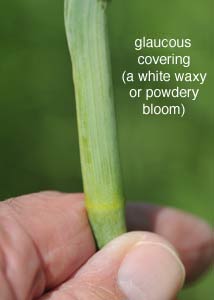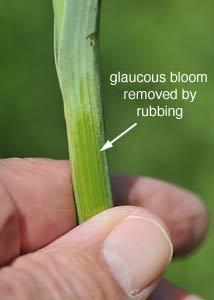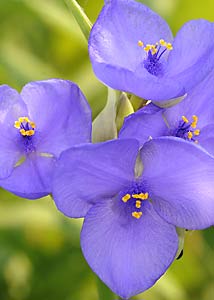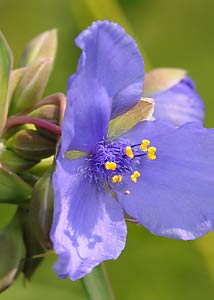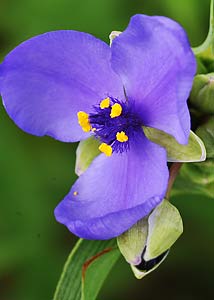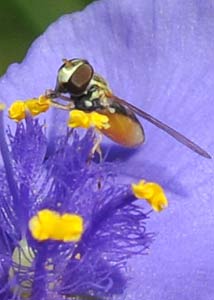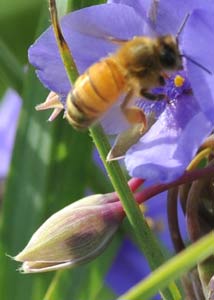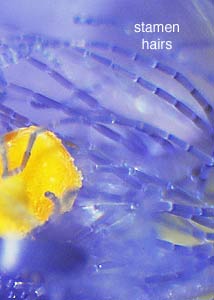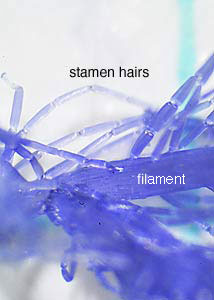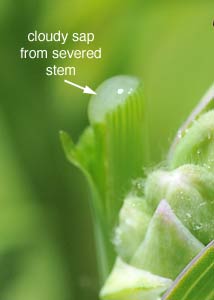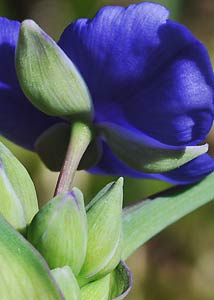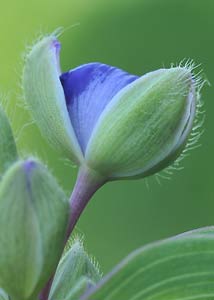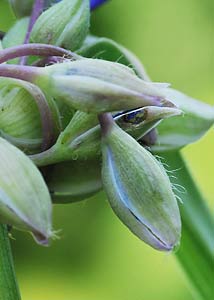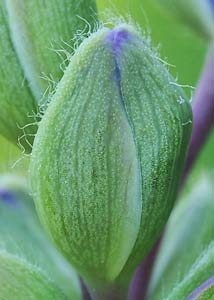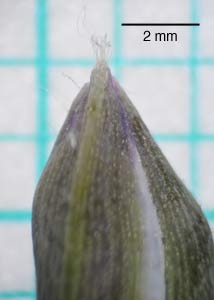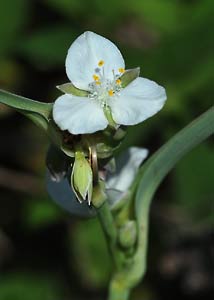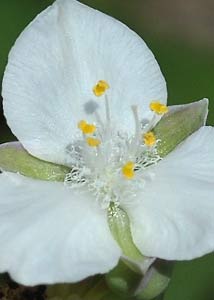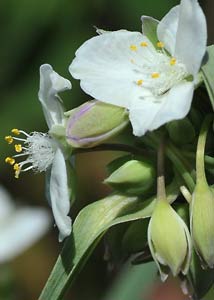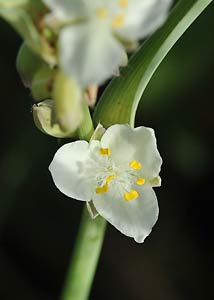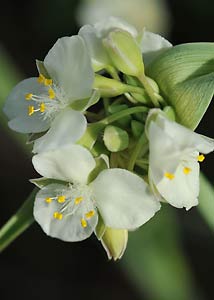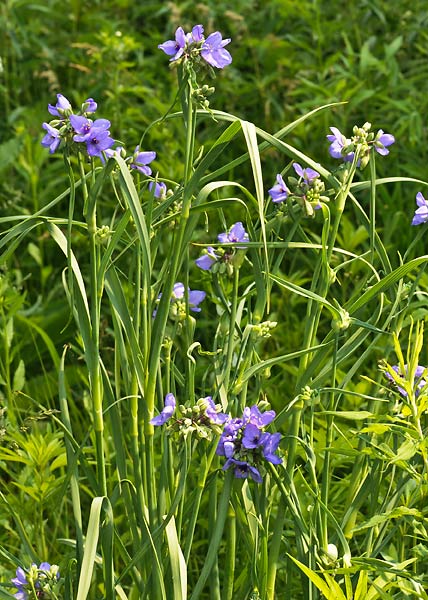
Date: May 30, 2010. Location: Kent Park (map)
| Classification Hierarchy | |
| Kingdom | Plantae |
| Subkingdom | Tracheophyta |
| Superdivision | Spermatophyta |
| Division | Magnoliophyta |
| Class | Liliopsida |
| Subclass | Commelinidae |
| Order | Commelinales |
| Family | Commelinaceae |
| Genus | Tradescantia |
| Species | Tradescantia ohiensis |

Date: May 30, 2010. Location: Kent Park (map)
USDA Plant Profile Flora of N. America
Scientific Name: Tradescantia ohiensis
Common Name: Ohio spiderwort, Bluejacket
Origin: Native
Notes: T. ohiensis is the most abundant of the four species reported in se Iowa. The stem is glaucous and the pedicels and sepals are glabrous with the occasional exception of a few hairs at the tip or along the midline of the sepals. (See reference 11 for T. ohiensis forma pilosa). T. bracteata and T. occidentalis which are both uncommon in our area, have densely hairy sepals and pedicels.
The stamen hairs of Tradescantia are often used in biology classes to demonstrate cytoplasmic streaming. See videos: in stamen hairs and Elodea leaves. They are also a sensitive bioassay for UV-B irradiation and mutagenicity.
Additional references: 1, 2, 3, 4, 5, 6, 7, 8, 9, 10, 11, 12.
Flowers: April; usually blue/violet but also rose and occasionally white; as with other monocots, flower parts are in threes; sepals and pedicels are glabrous except that occasional sepals may have tufts of hair at their tips or along a ridge at their midline; fruit a capsule.
Stems: stems, leaves, and sepals are characteristically glaucous and glabrous.
Leaves: long linear with base surrounding the stem.
Glossaries of botanical terms: 1, 2, 3, 4, 5, 6, 7, 8, 9, 10.
